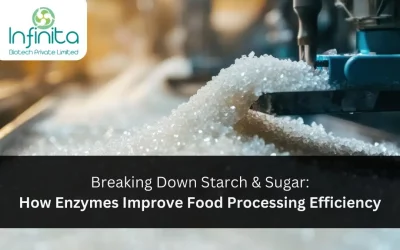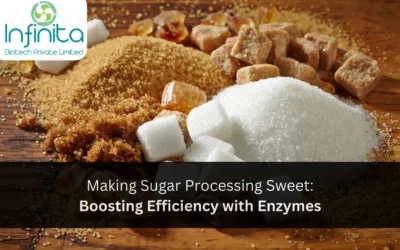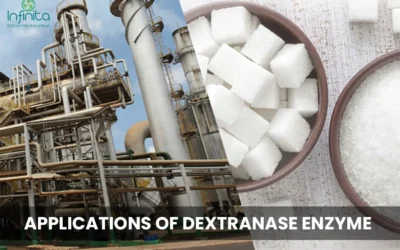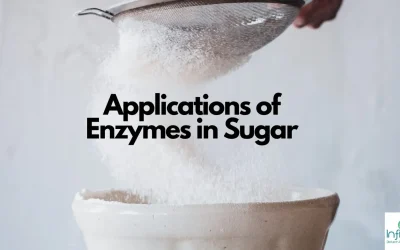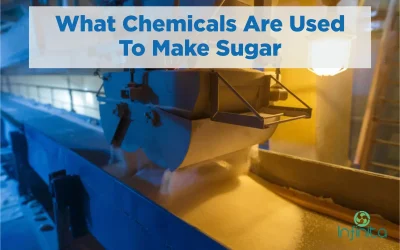Sugar processing plays a vital role in our daily lives, as sugar is an essential ingredient used in various food and beverage products. The process of turning raw materials, such as sugar cane or sugar beets, into the refined sugar we consume involves complex steps and requires careful consideration of efficiency and quality. In recent years, the use of enzymes in sugar processing has emerged as a significant innovation, offering the potential to enhance both efficiency and quality outcomes.
Understanding the Basics of Sugar Processing
The Sugar Production Process
The sugar production process is a complex and intricate system that involves various stages to transform raw sugar cane or sugar beets into the refined sugar we use in our daily lives. Once the sugar juice is extracted from the raw material, it goes through a meticulous purification process to eliminate impurities and contaminants. This purification process is crucial to ensure the final product is of high quality and meets industry standards.
After the extraction of sugar juice, it undergoes a series of steps to remove impurities such as plant fibers, minerals, and other organic compounds. Juice clarification, filtration, and evaporation are just a few of the essential processes involved in refining the sugar juice. These steps are carefully monitored to guarantee that the sugar crystals produced are pure and free from any unwanted substances.
The Importance of Efficiency and Quality in Sugar Processing
Efficiency and quality are paramount in the world of sugar processing. A high level of efficiency in the production process ensures maximum yield, optimal resource utilization, and cost-effectiveness. By streamlining operations and minimizing waste, sugar manufacturers can enhance their overall productivity and competitiveness in the market.
Furthermore, the quality of the sugar produced plays a significant role in consumer satisfaction. The taste, texture, and appearance of the final sugar product are directly influenced by the refining processes employed during production. It is essential for sugar processing facilities to maintain a delicate balance between efficiency and quality to meet the ever-evolving demands of consumers and uphold their reputation in the industry.
The Science Behind Enzymes
What are Enzymes?
Enzymes are biological catalysts that accelerate chemical reactions by lowering the energy required to initiate them. These specialized proteins are naturally occurring and perform crucial functions in various living organisms. In the context of sugar processing, enzymes can offer unique benefits due to their ability to enhance specific reactions and perform under specific conditions.
Enzymes are incredibly versatile and can catalyze a wide range of reactions, from breaking down food in our digestive system to aiding in DNA replication. They are essential for life as we know it, playing a vital role in maintaining cellular functions and regulating metabolic processes. Without enzymes, many biochemical reactions would occur too slowly to sustain life.
How Enzymes Work in Biological Systems
Enzymes work by binding to specific substrates, which are the molecules they act upon, and facilitating chemical transformations. They do so by lowering the activation energy required for a reaction to occur, resulting in increased reaction rates. Enzymes achieve this through their unique three-dimensional structures, which provide an active site where substrates can bind, allowing for precise and efficient catalysis.
Moreover, enzymes exhibit remarkable specificity towards their substrates, meaning that each enzyme will only catalyze a particular reaction with a specific substrate. This specificity is crucial for maintaining the order and efficiency of biochemical pathways within cells. Enzymes can also be regulated through various mechanisms, such as feedback inhibition, where the end product of a metabolic pathway acts as an inhibitor to the enzyme responsible for its production, preventing an over-accumulation of products.
Enzymes in the Sugar Industry
The Specific Role of Enzymes in Sugar Processing
Enzymes have found valuable applications in the sugar industry. In sugar processing, certain enzymes aid in the breakdown of non-sugar components, such as pectin and starch, present in the sugar juice. This enzymatic breakdown allows for easier separation of impurities and accelerates the overall refining process.
Enzymes play a crucial role in enhancing the efficiency and sustainability of sugar production. By utilizing enzymes, sugar manufacturers can reduce the need for harsh chemicals and energy-intensive processes, leading to a more environmentally friendly approach to sugar processing. Moreover, the use of enzymes results in higher yields and improved product quality, meeting the increasing demands of consumers for pure and natural sweeteners.
Different Types of Enzymes Used in Sugar Processing
Various types of enzymes are utilized in sugar processing, each serving a specific purpose. For instance, amylases assist in breaking down starch into simpler sugars, while pectinases aid in the degradation of pectin, a complex carbohydrate found in plant cell walls. Additionally, invertases help convert sucrose into glucose and fructose, contributing to the desired composition and properties of the sugar product.
Enzymes are carefully selected and tailored to suit different stages of the sugar production process. Proteases, for example, are employed to hydrolyze proteins that may be present in the sugar juice, preventing potential issues during crystallization. Moreover, enzymes like cellulases are utilized to break down cellulose, a structural component in plant cell walls, facilitating the extraction of sugars for further processing. The strategic use of enzymes in sugar processing not only streamlines operations but also ensures a more sustainable and cost-effective approach to sugar production in the modern era.
The Impact of Enzymes on Efficiency and Quality
How Enzymes Enhance Processing Efficiency
The incorporation of enzymes in sugar processing brings about several efficiency-enhancing benefits. For instance, enzymes accelerate the rate of reactions, reducing the time required for each step in the refining process. This, in turn, allows for higher production volumes and increased overall throughput, leading to improved efficiency and reduced production costs.
Furthermore, enzymes play a crucial role in optimizing resource utilization within sugar processing plants. By facilitating More complete breakdown of raw materials, enzymes help extract maximum value from the input materials, minimizing waste and enhancing overall process efficiency. This not only benefits the bottom line of the company but also contributes to a more sustainable and environmentally friendly production process.
The Role of Enzymes in Improving Sugar Quality
Enzymes not only contribute to efficiency but also have a significant impact on sugar quality. By specifically targeting unwanted components in the sugar juice, enzymes aid in removing impurities and enhancing the purity of the final product. Moreover, enzymes can improve the sensory attributes of sugar, such as taste and clarity, resulting in a more appealing end product for consumers.
In addition to enhancing the physical characteristics of sugar, enzymes also play a vital role in extending the shelf life of the product. By breaking down complex molecules that can lead to spoilage, enzymes help increase the stability and longevity of sugar products, ensuring that they maintain their quality and freshness for an extended period. This not only benefits consumers by providing them with a superior product but also reduces food waste and enhances the overall sustainability of the sugar industry.
Future Perspectives: Enzymes and Sugar Processing
Potential Innovations in Enzyme Technology for Sugar Processing
The future holds exciting possibilities for enzyme technology in sugar processing. Researchers are actively exploring new enzyme variants and optimizing their performance to meet the specific challenges of the sugar industry. Advances in enzyme engineering, such as enzyme immobilization and the use of genetically modified enzymes, hold promise for further improving efficiency and quality outcomes.
The Future of the Sugar Industry with Advanced Enzyme Use
As the sugar industry continues to evolve, the integration of advanced enzyme use is likely to play a pivotal role. The adoption of innovative enzyme solutions has the potential to revolutionize sugar processing, enabling higher productivity, reduced environmental footprint, and the production of sugar products that meet the ever-changing demands and expectations of consumers.
In addition to these exciting developments, ongoing research is also exploring the potential of enzyme technology to address other challenges faced by the sugar industry. For instance, scientists are investigating the use of enzymes to improve the extraction of sugar from alternative sources, such as agave and stevia. By unlocking the full potential of these alternative sweeteners, enzyme technology could open up new avenues for the sugar industry, catering to the growing demand for natural and healthier sugar alternatives.
Furthermore, the future of enzyme technology in sugar processing extends beyond the production phase. Researchers are also exploring the use of enzymes in waste management and byproduct utilization. Enzymes can play a crucial role in converting sugar processing waste into valuable products, such as biofuels or bioplastics, thereby reducing waste and creating a more sustainable sugar industry.
In conclusion, enzymes have emerged as powerful tools in the realm of sugar processing, offering the means to enhance both efficiency and quality outcomes. Their unique catalytic properties and targeted actions make them invaluable in breaking down non-sugar components and improving the overall refining process. As research and development efforts continue to advance, enzymes hold immense potential for shaping the future of sugar processing, paving the way for more sustainable and high-quality sugar products.
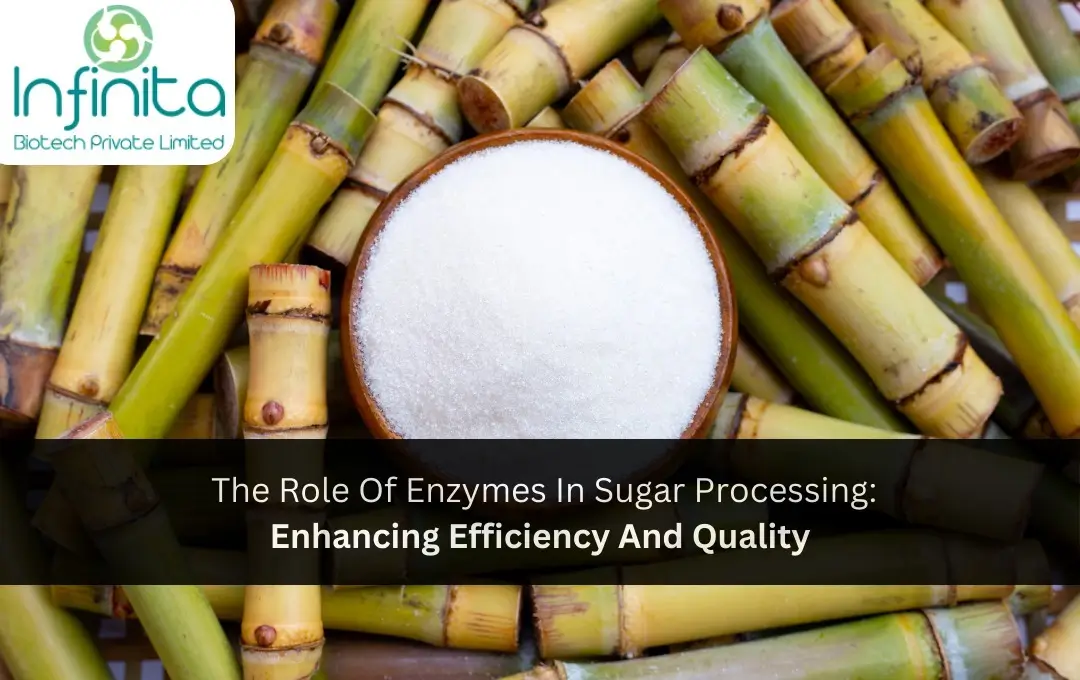
 Summarize this Article with AI
Summarize this Article with AI
